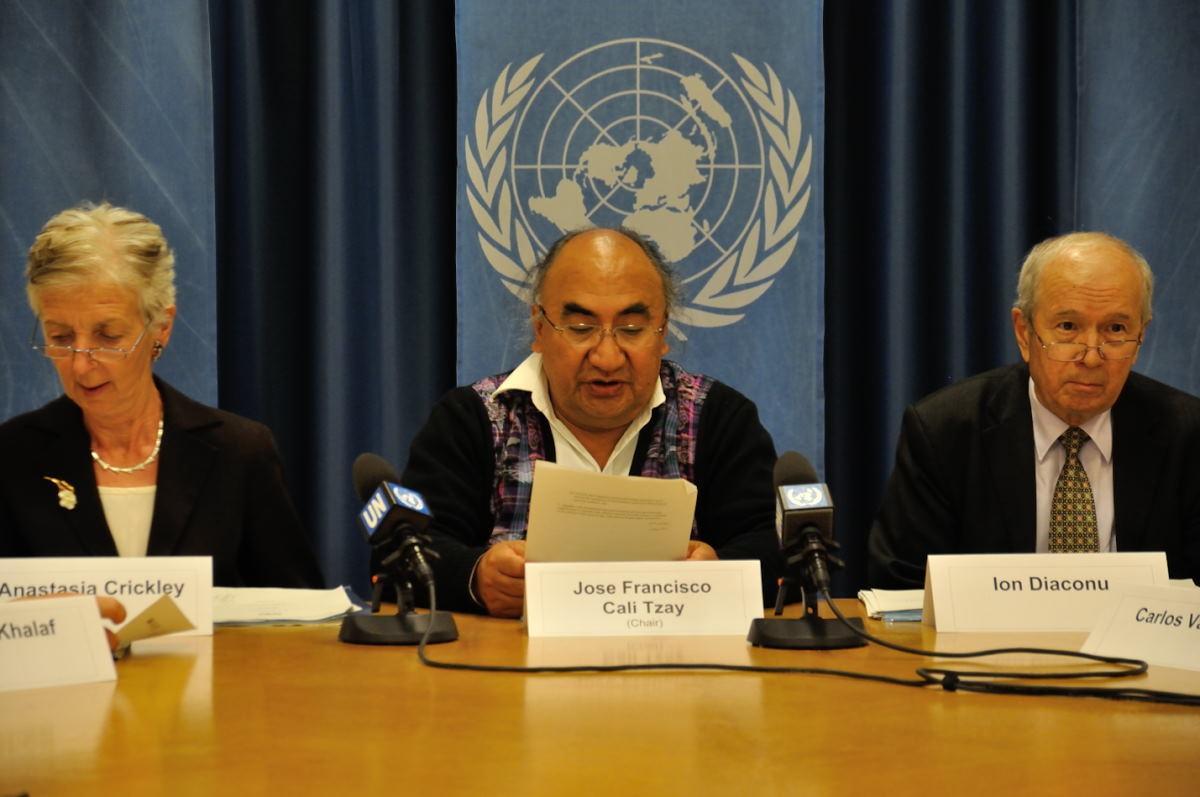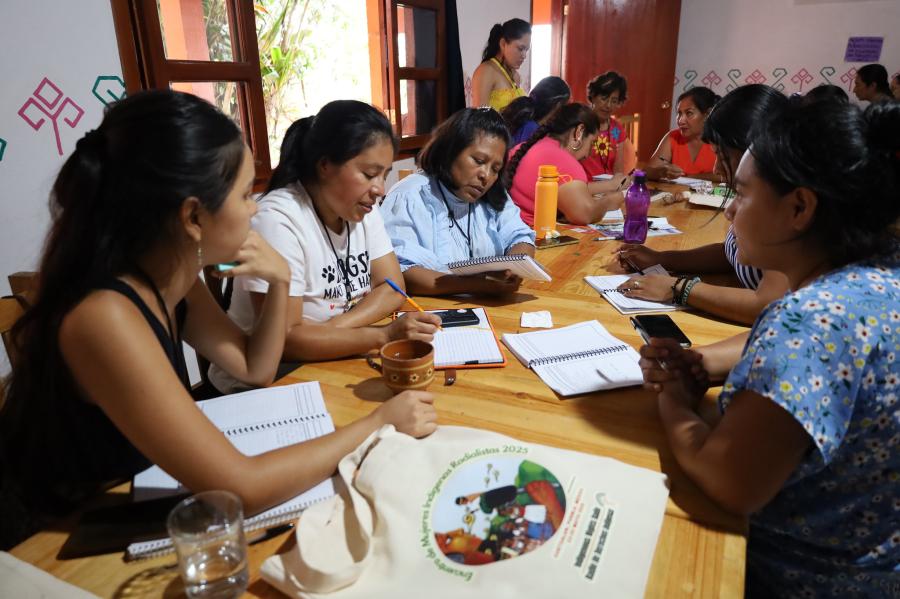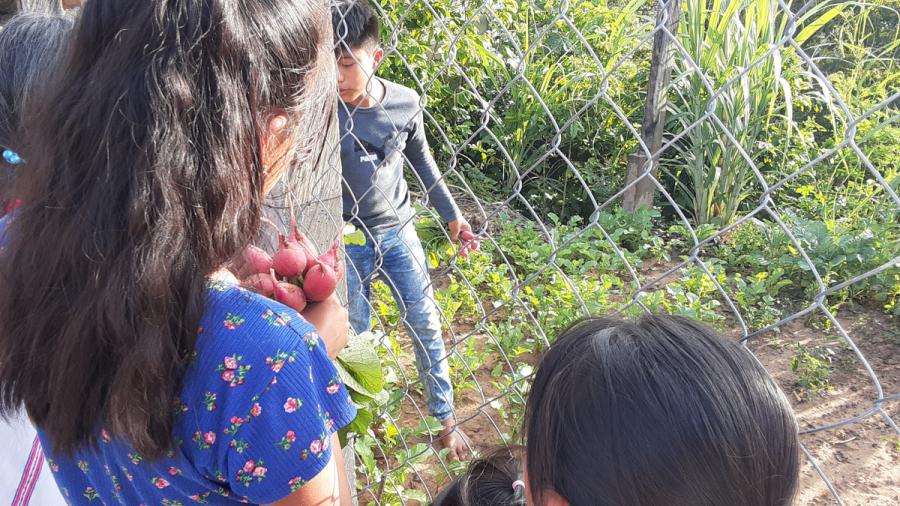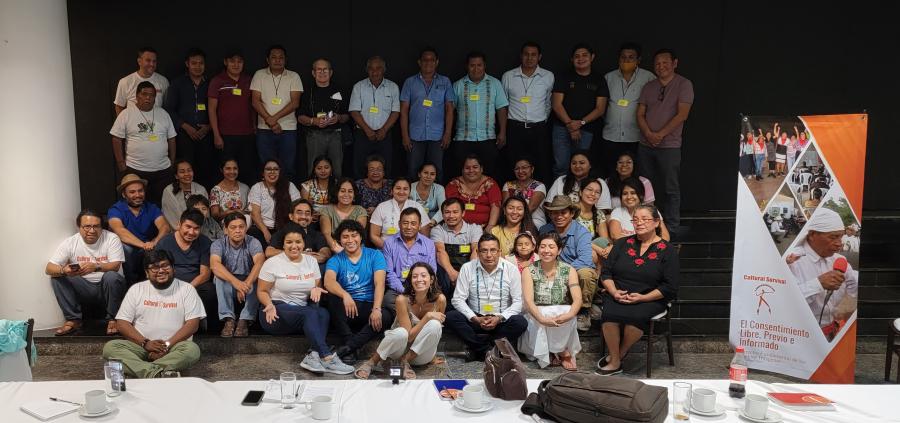
On September 19, 2019, the Committee on the Elimination of Racial Discrimination (CERD), a UN human rights body that monitors State adherence to the Convention on the Elimination of All Forms of Racial Discrimination, released its Concluding Observations about Mexico’s human rights record. The Committee denounced attacks on Indigenous journalists and Indigenous community radio stations in Mexico.
In July, Cultural Survival was part of a coalition of 12 organizations that submitted an alternative report on Mexico's Indigenous rights record to the Committee. Cultural Survival contributed information on the issue of freedom of expression of Indigenous Peoples. Community radio stations are a tool that helps fulfill the essential right of Indigenous Peoples to their freedom of expression. Community radio is used to transmit and provide access to information in Indigenous languages and strengthens democratic participation in society. Indigenous Peoples use radio to promote cultures, languages, and traditions and plays a decisive role when the territories have been threatened by mining megaprojects such as the Sierra Negra de Puebla or San José del Progreso. Yet, journalists in Mexico regularly come under threat of violence. In 2017, Mexico was considered the most dangerous country for journalists. Many of the cases of murders of journalists in Mexico are directly related to their investigative and journalistic work, including covering Indigenous rights violations. A clear example is Cándido Ríos Vásquez who was killed in 2017 covering Indigenous and migrant women. Marcos Hernández was investigating Indigenous radio stations and was killed in Oaxaca in 2016. There are many more cases of deaths of radio broadcasters and journalists which remain without investigation.
Cultural Survival’s report also focused on the difficulty that Indigenous communities face in accessing licenses for broadcasting, despite a 2014 law authorizing Indigenous communities legal use of radio frequencies. The 2014 law also mandated that government agencies devote a fraction of their communications budgets to broadcast on the air at Indigenous community radio stations, yet five years later, this source of funding is not being equitably distributed, and not reaching to Indigenous community radio stations.
In its Concluding Observations, regarding the freedom of expression of Indigenous Peoples, the Committee stated: “The Committee is seriously concerned about information that accounts for attacks on life committed against journalists and community communicators who report violations of human rights, especially of indigenous peoples and their territories. Attacks on journalists have reportedly increased by more than 163% between 2010 and 2016. It is also concerned about administrative difficulties in registering community radio stations, including Indigenous community radio stations and limited budget support for its operation...
“The Committee urges the State party to carry out thorough investigations of all attacks on life, acts of harassment and harassment against journalists in general and community communicators and journalists, in particular those who defend the rights of Indigenous Peoples , and properly prosecute and punish those responsible. The Committee recommends that the State party take the necessary measures to facilitate the process of registering Indigenous community radio stations and to ensure compliance with the Federal Telecommunications and Transmission Law so that Indigenous community radio stations have the necessary financial support for their proper functioning by virtue of the fundamental role they play in the transmission of Indigenous knowledge, culture and traditions.”
Read the Cultural Survival’s Alternative CERD Report here.
Photo: José Francisco Cali Tzay (Mayan Kaqchikel) from Guatemala, was elected on February 3, 2014 to a two-year term as President of the United Nations Committee on the Elimination of Racial Discrimination (CERD). Cali Tzay is the first Indigenous expert to hold such a position in the UN system. Photo courtesy of RIDH/Panorama diplomático.



